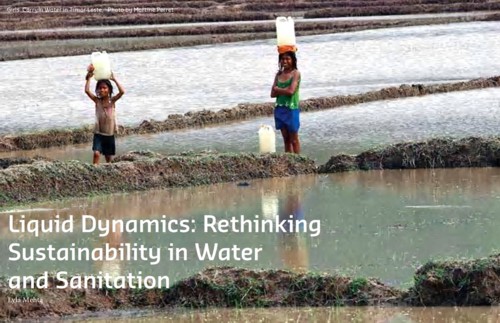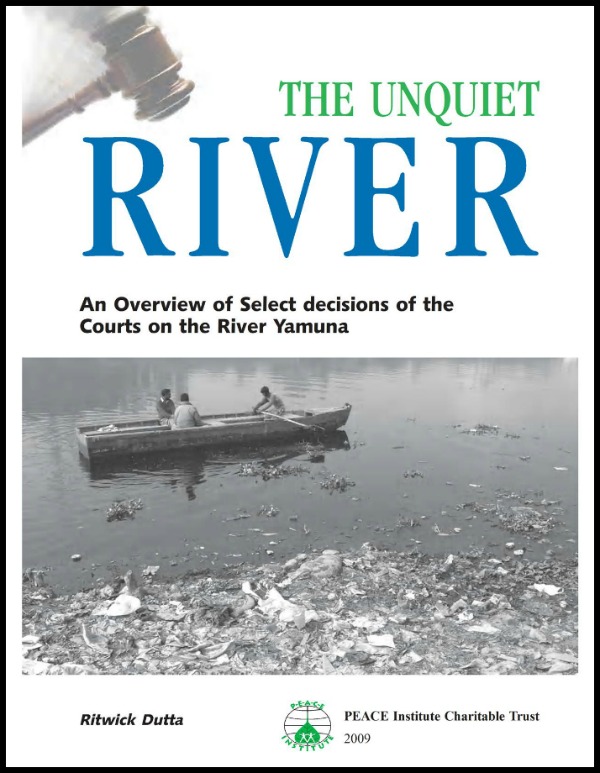/topics/health
Health
How valuable are environmental health interventions? - Evaluation of water and sanitation programmes in India - Paper published in the Bulletin of the World Health Organisation
Posted on 21 Feb, 2012 06:11 PMThe paper informs that a number of epidemiological studies on the benefits of water and sanitation interventions have shown that diarrhoea can be reduced by 30–50%.
Impacts of climate change on public health in India - Future research directions - Paper published in Environmental Health Perspectives
Posted on 19 Feb, 2012 11:00 PMThis paper published in the journal Environmental Health Perspectives reviews the current state of the science relevant to the 2009 Joint Indo–U.S. Workshop on Climate Change and Health that was held in Goa, India, and, then discusses the observed relationships between climate variability and human health specifically in relation to the Indian subcontinent, highlighting future research directions.
The paper briefly summarises relevant literature on the impacts of climate change in India and touches upon the opportunities and significant challenges associated with designing, initiating, and conducting research, as well as pursuing related public health programming to improve public health infrastructure in the face of climate change. The paper argues that such research is needed to pave the way for unique and pioneering solutions that can improve public health in the face of increasing climate variability.
"Water management in Mumbai: Prospects and challenges" - Videos from a round table organised by Observer Research Foundation
Posted on 16 Feb, 2012 03:51 PMThese four films include details of speeches made by the Municipal Commissioner of Brihan Mumbai Municipal Corporation (BMC), Mr Swadhin Kshatriya, who delivered a valedictory speech and Mr Sandeep Acharya, senior journalist from Loksatta, who expressed his views on the water crisis in Mumbai, as a part of a round table organised by Observer Research Foundation (ORF), on "Water management in Mumbai: Prospects and challenges", on the 10th of January 2010.
"Bottle it up: We can use it" - Scientific studies on human urine - A presentation by Arghyam
Posted on 10 Feb, 2012 11:13 AMThis presentation by Arghyam includes the results of doctoral study done by G Sridevi under the guidance of Prof.
Nutrient-based fertiliser subsidy: Will farmers adopt agricultural best management practices? An article in EPW
Posted on 06 Feb, 2012 11:58 AMIt offers prospective benefits from the agro-environmental management point of view.
Global change, wastewater and health in fast growing economies - Paper published in the journal Current Opinion in Environmental Sustainability
Posted on 02 Feb, 2012 11:35 AMIt argues that among the water challenges in the 21st century, the water quality health nexus is one of the most serious challenges that will need to be addressed at an urgent level.The paper directs attention at the rapid and unequal growth and development patterns emerging in developing economies and the impact of this development on the environment and human populations. The paper directs attention to the negative impact of this development on one of the important natural resources such as water and the linkages between water quality and public health of populations.
Liquid Dynamics: Rethinking sustainability in water and sanitation
Posted on 20 Jan, 2012 06:55 PMThis paper begins with the slow rate of progress in achieving the millennium development goals of environmental sustainability, especially in the areas of water and sanitation. This is due to the disconnect between the global rhetoric (which often focuses on water as an economic good) and social realities (such as the cultural attitudes towards water)

Groundwater hydrology and groundwater quality in and around Bangalore city - Department of Mines and Geology (2011)
Posted on 19 Jan, 2012 11:04 AMEarlier studies carried out by the Department of Mines and Geology during 1994, 1995 and 2003 on the groundwater quality of Bangalore Metropolis had found that the groundwater pollution in the city has mainly been due to sewage disposal and recommendations have been made to prevent pollution from sewage and industrial wastes.
The unquiet river: An overview of select decisions of the courts on the river Yamuna
Posted on 14 Jan, 2012 06:40 PMThe river has attained the distinction of being perhaps the river attracting the most judicial attention in india, after the Ganga. This report analyses the various laws and judicial decisions pertaining to the Yamuna and their effects on the river.
Lady Tata Memorial Trust invites applications for “Young Research Awards – 2012” – Apply by January 16, 2012
Posted on 03 Jan, 2012 07:52 AM![]()
The Sir Dorabji Tata Trust, one of the oldest, non-sectarian philanthropic organisations in India, was set up by Sir Dorabji Tata with the prime purpose of encouraging learning and research in the country, of meeting costs of relief during crises and calamities and of carrying out worthwhile charitable activities. The Trust’s vision of constructive philanthropy has been sensitive to the fast-growing needs of a developing nation, while the work initiated by it holds contemporary relevance as it continues to support innovative enterprises in development.





